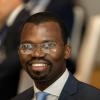A new narrative of ‘Africa rising’ has taken a foothold in media and politics in the past years. Demographic trends, natural resource wealth and diversified partnerships: Africa seemed to have it all lined up. The compounded economic, nutritional and geopolitical repercussions of recent global events make it all the more important for African countries and citizens to pool their efforts to build a prosperous, healthy and safe Africa. A critical challenge is to ground such optimism on inclusive and sustainable development strategies, beyond ‘data mirage’.
The question of Africa’s political institutions is at the forefront of a new pragmatic and optimistic vision for Africa at the Geneva Graduate Institute. In partnership with the Swiss Federal Department of Foreign Affairs, we celebrated Africa Day on 25 May 2022 with a day of reflection on the future of African multilateralism. Discussions highlighted the critical linkages between African and global multilateralism, focusing on multilateral institutional innovations, new partnerships, and new ways of making peace.
A public keynote capped off Africa Day. The keynote speaker, Jean-Marie Ehouzou, looks back at a rich career in diplomacy and multilateral organisations, including as Foreign Minister of Benin and Permanent Representative of the African Union to the United Nations Office in Geneva. Rooting his analysis in a rich historical understanding of African integration, he argued that postcolonial independence “thrust Africa squarely into global multilateralism - without prior preparation”.
Looking ahead, Minister Ehouzou cautioned that the “moral authority” of Africa’s inclusion in the international community needs to be restored, not least by doubling down on term limits and stopping non-constitutional changes of government. Africa must also oppose, Minister Ehouzou stressed, a come-back of the principle of the use of force in international relations.
In an exchange with students from the Geneva Graduate Institute, who asked a series of very thoughtful questions, Minister Ehouzou agreed with the urgent need to reinstate popular support for multilateralism in Africa, especially by using multilateral institutions to provide economic and social opportunity to Africa’s youth. Proudly rooting this engagement in Africa’s arts and culture can help find common ground. Ultimately, a bright future for African multilateralism is only possible with broad support among major African powers: Jean-Marie Ehouzou made an urgent “an appeal to the continent's current driving forces to put aside their differences in order to be at the forefront of regional initiatives in Africa's interest.”
Read New Optimism for Africa at the Geneva Graduate Institute.


